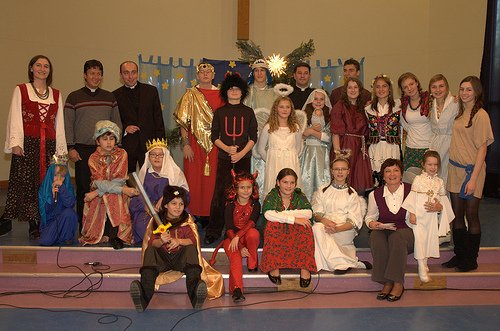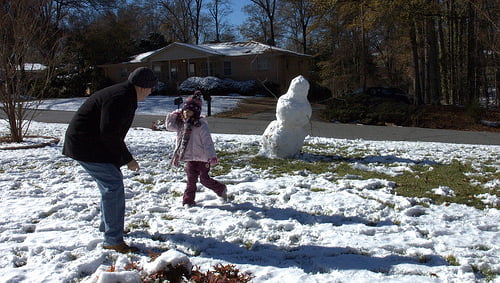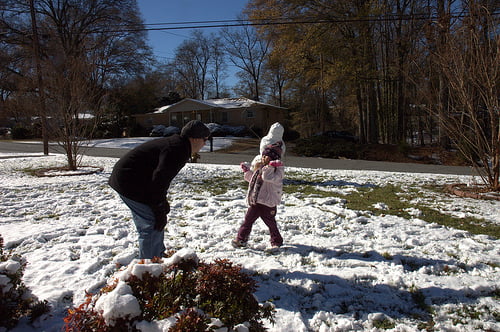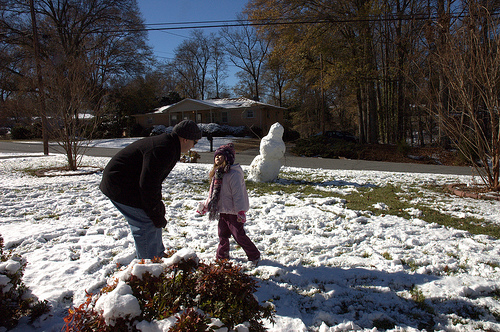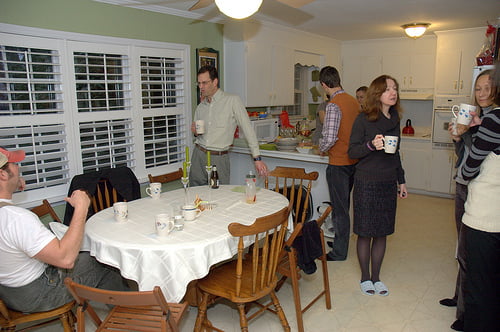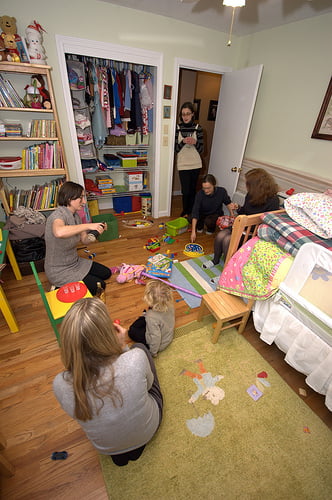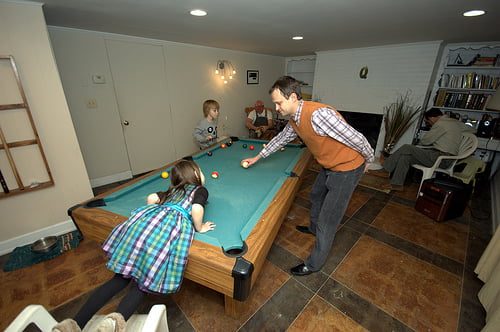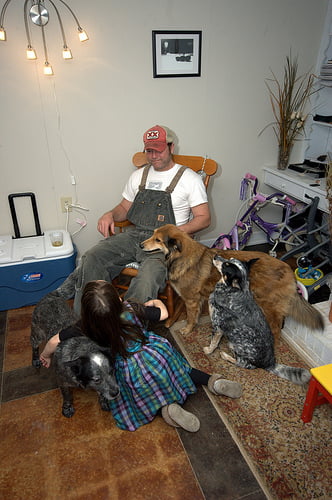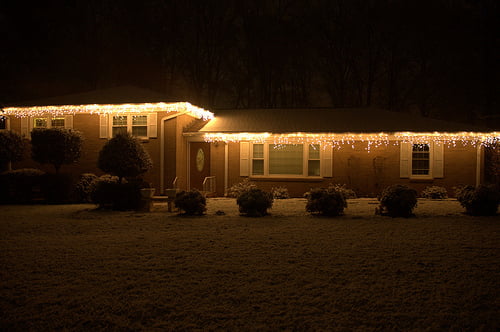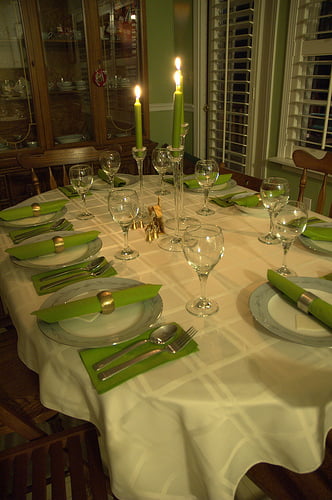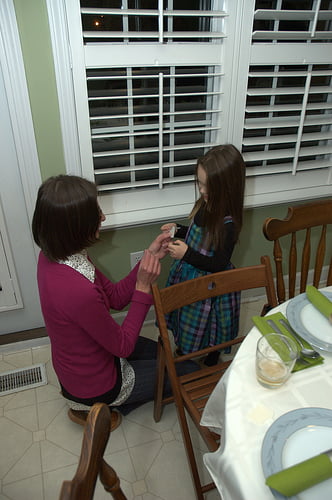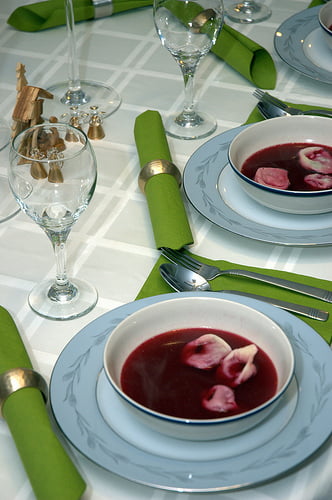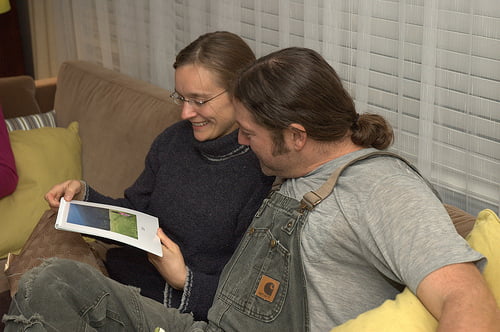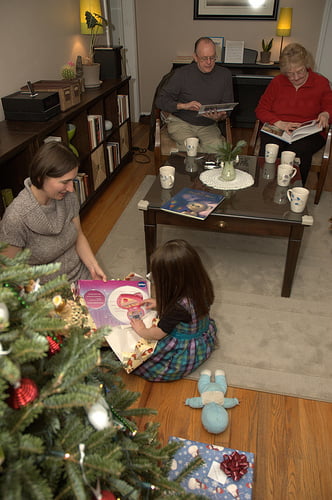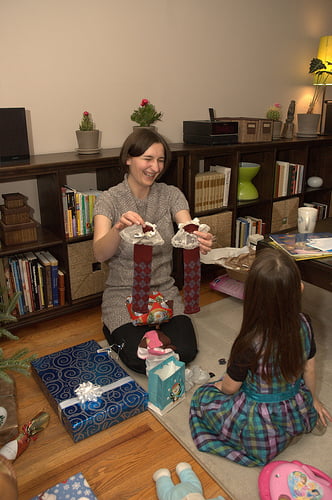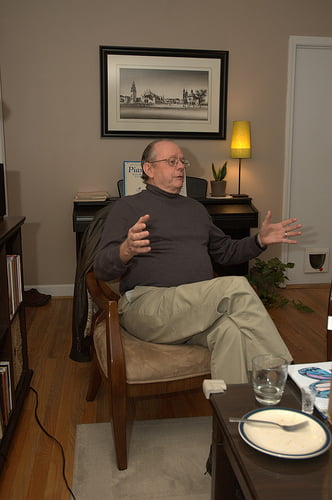Christmas 2010
“There’s a forecast of snow,” was the rumor running through the house. “It’ll be the first snow during Christmas since the early 1960’s.”
By the time the guests arrived in the late afternoon, there were flurries. The temperature stayed above freezing, but the snow and festive mood led to the only logical conclusion: toddies for everyone.
The evening continued, as did the snow and conversation.
The usual gender self-segregation gradually developed: the ladies in L’s room,
the guys in the basement, and the children moving back and forth between.
Visiting friends’ dogs and the pool table seemed to have an inordinate draw for the kids. I remember as a child the fascination I too held for the concept of billiards. It seems like the perfect kid’s game, which I guess it is: flat surface, lots of balls, purposeful collisions. Sort of like a demolition derby.
I excused myself for a few moments to take some photos of the house in snow. I tromped through the first Christmas snow in almost fifty years, thinking about the privilege inside and out, that having close friends is as rare and dear as Christmas snow in the south.
Wigilia 2010
The food is prepared. The guests have arrived. The table is set. It’s time for the most-anticipated evening of the year: Wigilia, the traditional Polish Christmas Eve dinner.
It’s the thirteenth time — seven in Poland, six in the States with K — that I’ve experienced what has become the highlight of the year.
We exchange the opłatek, sharing wishes for the coming year. Variations of “May this coming year be better than this closing year,” the eternal hope of humanity, echo through the kitchen.
We begin the parade of food: two soups, dumplings stuffed with cabbage and mushrooms, fish, salads, rice, desert after desert. Tradition dictates repetition, and the menu is no different. We have the same soups every year: barszcz z uszkami (borscht with dumplings) and wild mushroom soup. We have salmon as the main fish course, this year stuffed with crab meat.
The appeal of tradition, though, is that you know what’s coming. There are no surprises. We’re comforted in the knowledge that at least this one thing has not changed, for change isn’t always positive. So while we play with the idea of switching the menu — maybe having a different fish — we always end up following tradition.
After dinner, we open gifts. When I hear about some people’s expectations for Christmas presents (suggestions to buy $2,000 rings, piles of clothes, multiple video games), I wonder what’s the point. Such a Christmas is spoiled if one doesn’t get one’s material lusts satisfied.
I often wonder how many people have such materialistic, shallow Christmas experiences: getting gifts, then retreating into solitude to play with the toys. It’s as if they’ve forsaken the real treasure of Christmas for silly trinkets.
The real treasure is family and friends gathering together to share some laughs and companionship.
Previous Years
Before the Storm
The day before Christmas Eve in a Polish household is always frantic. Cakes to bake, salads to make, and general culinary chaos.
The heating system dying in the morning didn’t help, though. The verdict: the zoning system’s main control board is malfunctioning. Cost: the part alone runs $1300. Time to make some decisions. Merry Christmas from Arzel.

In the meantime, we have baking to do. Cheese cake, for instance, requires room-temperature ingredients, a fact inconveniently forgotten by inexperienced bakers the world over.
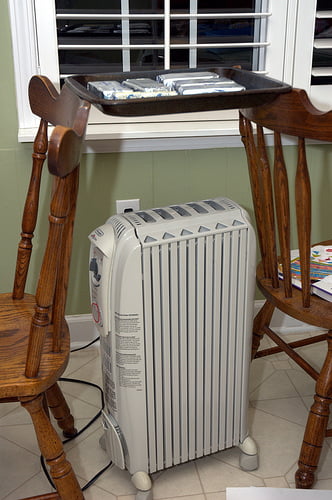
Fortunately, we had a little helper today to get us through the tough parts. Without her valuable advice and assistance, I’m sure we would have got finished much more quickly than we did been at a complete loss.
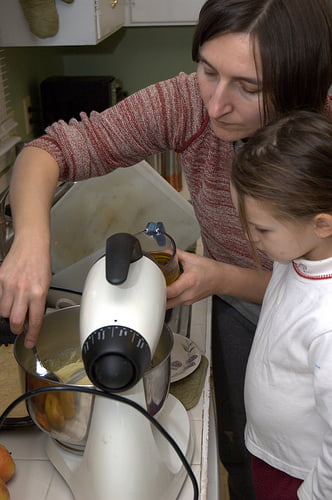
With her in the kitchen, it’s a constant battle against her curiosity. “I want to do it!” is her refrain.
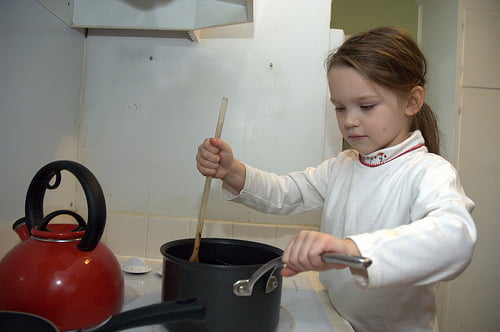
At the same time, how can one battle curiosity? Who would even want to? It’s a question of direction and redirection.
Polyglot Concert
Our daughter, thanks to a bi-lingual mother and multi-lingual daycare, knows songs in four languages.
First Solo
Jasełka
Nativity plays date at least from the time of St. Francis of Assissi, eight hundred years ago. This weekend, the concept was, once again, Polish-ized.
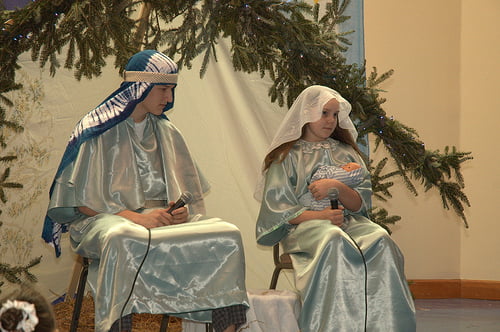
To be fair, it was not a one-off occurrence. Nativity plays, called jasełka (ya-sewl-ka) in Polish, are as customary during the Christmas as wreaths and carols.
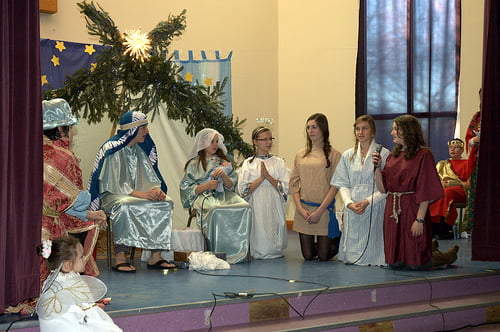
Unlike the modern American nativity play, which is often relatively high tech and performed by adults, Polish nativity plays are almost always entirely a production of children and adolescents — under the direction of adults.
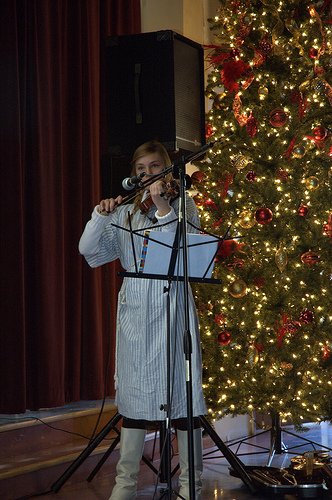
So in schools and churches throughout the Polish community worldwide, children are have been putting on nativity plays much like the one the small Polish community here watched this afternoon.
Yet this play was somehow different — incredibly different — than all the plays I watched while teaching in Poland. During the final days before Christmas break, students and faculty gathered to watch the year’s play: it was often, it seemed to me, an attempt by the directing teacher simply to impress the other teachers.
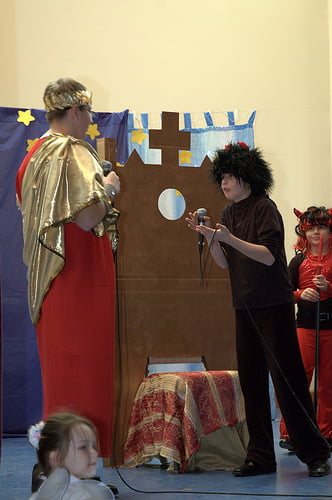
These actors were American children of Polish heritage, children who speak English naturally and Polish only when spoken to by an adult. Their Polish has the traces of limited exposure: accents, weak grammar, lower-level vocabulary: they speak Polish like I do, in other words. For all intents and purposes, Polish is a virtually-foreign language to them.
For them, it’s the language of parents and parents’ friends, a language to be spoken only when spoken to. When they sit around, waiting for their scene during rehearsal, they lapse to the more comfortable English, the language they speak without thinking.
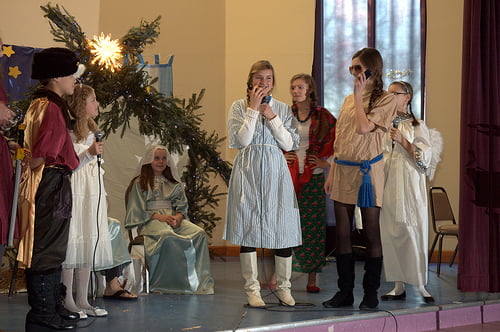
And yet they memorized line after line, exchange after exchange, and performed it with few cues.
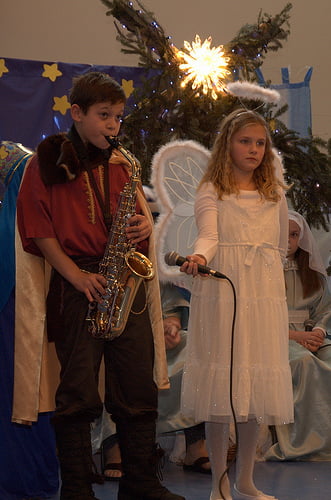
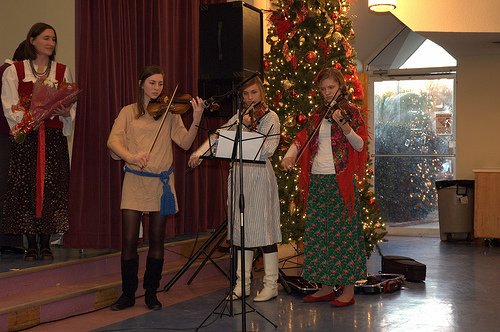
It was a showcase, a moment for kids to show their musical, acting, and linguistic talent. It was a celebration of one of the pivotal events in history — the pivotal event in the West.
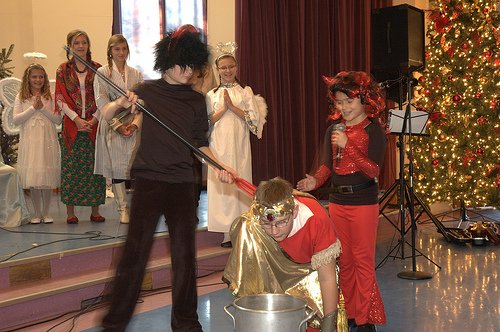
At the heart of the afternoon was the sense of community, the sense of belonging. In between scenes, the audience joined the kids in various renditions of the most popular Polish carols. Put ten Poles in a room together and they’ll end up singing: yet somehow, in suburban America, it had a special glow.
For K and me, there was a first — a first of many, I’m sure. As part of the finale, L sang a solo.
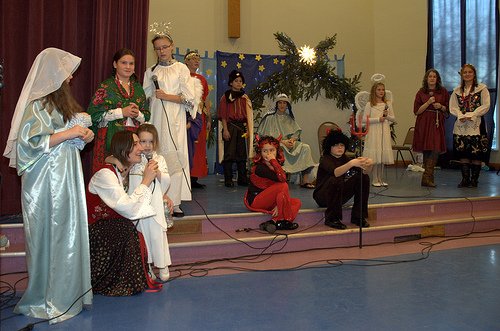
She was was off pitch and out of tune, but it was the sweetest moment I’ve ever experienced as a father.
